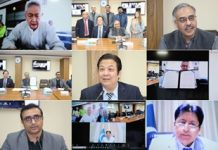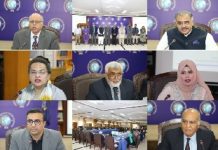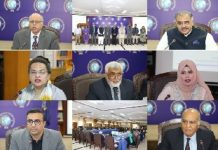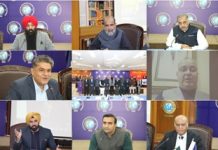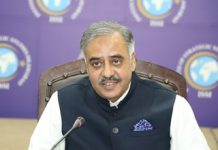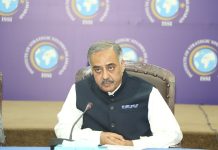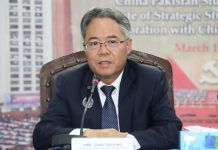Remarks by DG ISSI Ambassador Sohail Mahmood at the Book Launch
“Pakistan’s Pathways to Development: Integrating Economy, Environment & Society,” ISSI, 9 October 2024
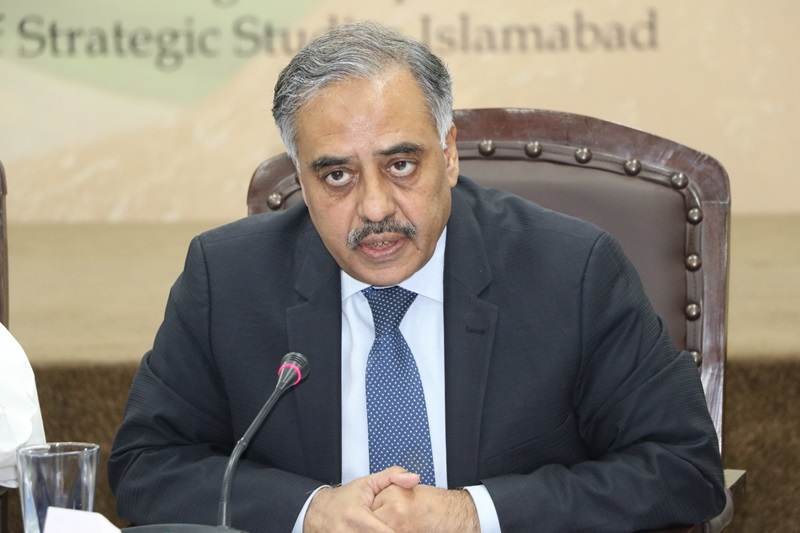
It is a great pleasure to welcome everyone to ISSI for the launch of another publication of ours that is of immense importance. The book, Pakistan’s Pathways to Development: Integrating Economy, Environment & Society, edited by Dr. Neelum Nigar, is a critical guide for navigating the complex terrain of sustainable development in Pakistan.
We are delighted to be joined in-person by Mr. Haroon Sharif, former MoS and Chairman BOI and a contributor to the book. Equally, we are delighted to have several of the authors join online. Their rich backgrounds and vast experience ensure that their interventions would add heft to our proceedings.
We are deeply honoured to have Dr. Waqar Masood Khan, former Advisor to the Prime Minister, as guest of honour. During his long and distinguished career in different capacities, he has served Pakistan with great distinction. Undoubtedly, his views and perspectives would enormously enrich our deliberations.
What makes this book particularly special is the rich tapestry of perspectives it offers. It draws upon the expertise of eminent scholars, seasoned policymakers, and experienced practitioners, each contributing their unique insights and analyses. Indeed, it is hard to imagine a more formidable and distinguished array of professionals contributing to a single volume. So, our profound thanks to Mr. Haroon Sharif, Dr. Ishrat Husain, Dr. Aisha Ghaus Pasha, Dr. Sahibzada Ali Mahmud, Professor Dr. Iqrar Ahmad Khan, Mr. Arthur Makhlaiuk, Ms. Kosar Bano and Ms. Rozina Begum, Dr. Faisal Bari, Ms. Nazia Malik and Dr. Saleem H. Ali, and Dr. Safdar Sohail. These contributors bring forth a wealth of knowledge that reflects both the complexities we face and the myriad opportunities we can harness. Their collective wisdom illuminates’ pathways that can guide us toward a sustainable future, grounded in both practicality and vision.
The structure of the book is as enlightening as its content, organized around three pivotal subthemes: Economy, Environment, and Society. Each section dives deep into the core aspects of sustainable development, presenting nuanced discussions that are critical for shaping Pakistan’s trajectory.
Starting with the economy, the book articulates strategies aimed at enhancing our economic competitiveness by crafting a clear vision of export promotion, leveraging of emerging technologies, and attraction of foreign investment. Underscoring the imperative of the shift to geo-economics, it stresses the need to align our economic policies with the geopolitical realities we live in, thereby positioning Pakistan to thrive in an increasingly interconnected world. Importantly, the book examines the transformative potential of digital technologies, urging us to harness these tools to improve our fiscal policies and debt management strategies. By exploring avenues like digital trade, it highlights opportunities that can significantly bolster Pakistan’s resilience and global standing.
Shifting to environmental concerns, the book delves into the critical pathways for ensuring sustainable energy security. It discusses the potential for a green transition in Pakistan, emphasizing the necessity of adopting sustainable energy practices. The call for international cooperation resonates strongly in this context, stressing that achieving our long-term environmental goals requires collective efforts and shared commitments.
The societal dimension is equally vital, and the book underscores the indispensable need for addressing the pressing issues within our educational landscape. It identifies necessary reforms that must be undertaken to tackle existing challenges, presenting innovative approaches to poverty alleviation. The discussions around demographic trends and the policies needed to harness the potential of our youth are particularly poignant. Moreover, the emphasis on gender inclusivity in this volume serves as a crucial reminder that achieving sustainable development goals is inherently tied to the empowerment of all segments of society.
This book is not just a collection of academic essays; it serves as an essential resource for anyone dedicated to understanding and advancing sustainable development in Pakistan. The insights contained within its pages provide a robust foundation for informed decision-making and strategic planning, equipping us with the knowledge needed to navigate the complexities of our time.
As we delve more deeply into the book’s contents, let us remember that this work is essentially a call to action for all stakeholders to collaborate and contribute to building a resilient, equitable, and sustainable future for Pakistan.
In conclusion, I would like to extend my heartfelt gratitude to Dr. Neelum Nigar for her leadership and her entire CSP team for bringing this project to fruition. I would also once again like to thank all the esteemed contributors who have shared their remarkable expertise and insights, making this book a rich resource for our collective journey toward sustainable development.
Thank you all for being here today. Do get a copy and benefit from its rich prognosis and richer prescriptions.




